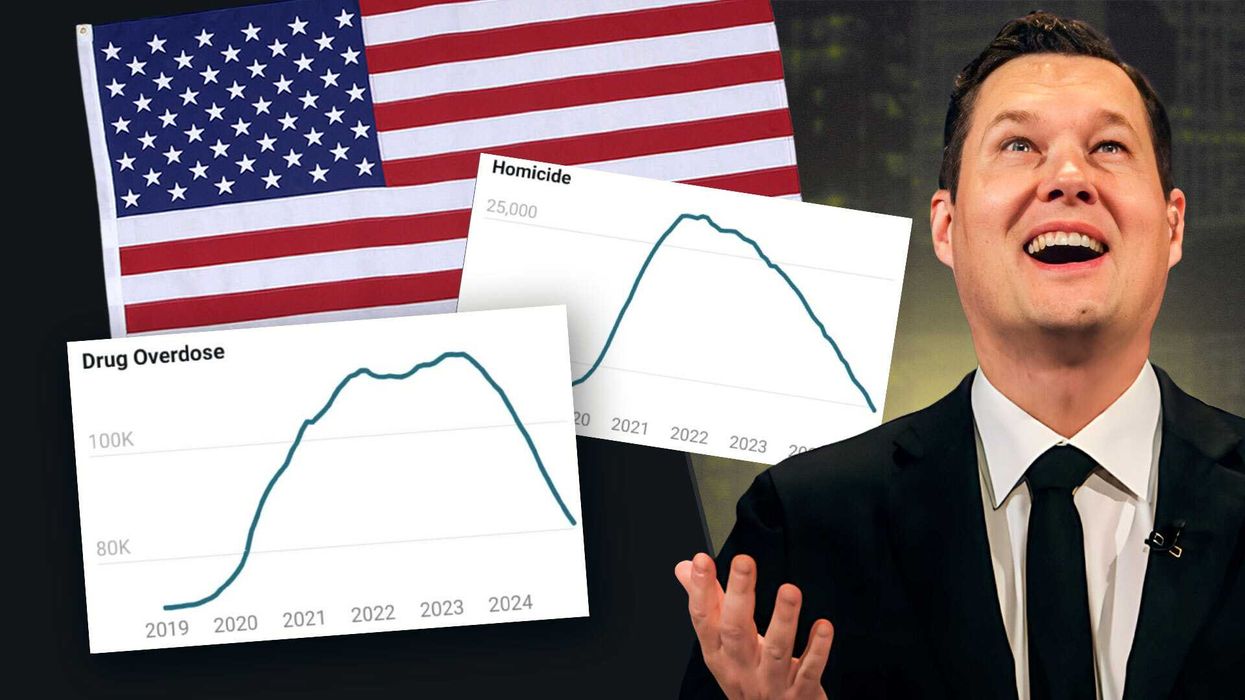
© 2025 Blaze Media LLC. All rights reserved.
Here's What You Need to Know About the Gov't Possibly Mandating Vehicle 'Black Boxes
April 19, 2012
"capture and store data related to motor vehicle safety covering a reasonable time period..."

The government has been inching along a mandate requiring a little black box in all vehicles forward for years. In fact, most cars already have them voluntarily. But recently, the Senate has passed a bill (S.1813) that would make it mandatory for all new cars by 2015 to come with a system that would record information from the vehicle in the moments before and after an accident.
More technically known as MAP-21 (Moving Ahead for Progress in the 21st Century Act), the bill has several provisions affecting transportation, but it's Section 31406 -- "Vehicle Event Data Recorders" -- that has those fearful of Big Brother overstepping its bounds. The section states that, if passed, the law would require new vehicles starting in 2015 to be equipped with black box-like devices that would "capture and store data related to motor vehicle safety covering a reasonable time period before, during, and after a motor vehicle crash or airbag deployment, including a rollover."
The bill states that all data on the black boxes would be property of the vehicle owner or lessee. If data from the device needed to be obtained for any reason, the owner would have to provide consent or a court order would have to be presented for it. It does state that in an emergency situation, data may be retrieved without explicit consent.
IEEE Spectrum states that 85 percent of vehicles already come with black boxes, according to the National Highway Transportation and Safety Administrion, and speculates that the average driver in an accident has "no idea [... the] data stored in the box details how the car was being driven in the moments before impact." And, although still not mandatory, IEEE Spectrum reports NHTSA has guidelines for cars with black boxes that must be met by 2013. The guidelines include variables that must be measured such as speed; position of the gas pedal; if the brakes were pressed; seat belt usage; and the time it took for airbags to deploy.
Here's an example showing how cars' black boxes are already being used. Earlier this year, the data recorder from Massachusetts Lt. Gov. Timothy Murray revealed he was speeding in a Nov. 2011 accident that totaled his vehicle. Yahoo! News reported the data also showed Murray was not wearing a seat belt. This case, which landed Murray with a fine, had some calling for tougher regulations for how authorities can obtain data from black boxes. Yahoo reports:
But most states have no such rules, and the data can often be easily accessed after a crash by insurers or investigators. There's also no way to shut off data recording, which safety systems rely on to decide when to deploy an air bag or take other measures.
Last year, USA Today reported 13 states had established laws to limit access to information stored on these devices. But even if consent were required, it's not available in all instances, as the recently passed Senate bill acknowledges. USA Today provides an example:
Getting that data is easier on some vehicles than others, but a Nashville company, VCE Inc., has been at the forefront of using information from the recorders to reconstruct traffic accidents since the introduction of the devices in the mid-1990s."We have been involved from the start and were among the first ones to begin downloading the data from these recorders for the accident reconstructions we do for attorneys and insurance companies," VCI Vice President Todd Hutchison said.
"We typically get permission from the owner of the vehicle, but that's not necessarily who owned it at the time of the accident," he pointed out. "If the insurance company has bought the salvaged vehicle, they can give us permission."
The National Motorists Association has taken the stance that "there is no rational or scientific need nor justification to equip tens of millions of vehicles on a perpetual basis with black boxes." It states:
While denials abound there is good reason to believe that the promotion of universal black box installation in new vehicles has more to do with regulatory, enforcement, judicial, and corporate economic interests; all at the expense of vehicle owners who are forced to pay for and retain this form of self-surveillance.The NMA does not object to safety research that involves the use of black boxes, as long as the participants are informed and willing and they are allowed to opt out of research project without negative consequences. As noted, such research can be reliably conducted with thousands of willing participants, versus millions of uninformed conscripts.
Although privacy advocates may consider black box systems stepping on the toes of personal privacy, a recent study by a UK car insurance provider saw 20 percent fewer accidents among young drivers who knew they had the devices in the car. The Guardian has more:
Telematics, or "black box" insurance, involves in-car tracking equipment to monitor driving behaviour such as braking and acceleration, cornering, speed and what time of day the car is driven. The data is then used to calculate insurance premiums: the better the driving, the lower the premium.Co-operative Insurance has analysed the driving habits of 10,000 telematics insurance customers aged 17 to 25 across the UK, finding that they were 20% less likely to have a crash than those with standard insurance. Telematics customers have less serious accidents, with a typical claim 30% less than ordinary customers.
As for the potential for mandating black boxes in vehicles by 2015, the next step is for the bill to pass in the House. According to the Washington Post last month, the House rejected the bill with a procedural vote but passed an extension to continue funding through September.

More than just black box devices are on the line with the bill, leading some to be upset at yet another extension. According to Transportation for America, the bill includes funding provisions for transportation and infrastructure projects.
Other measures in the bill some consider "Big Brother" include provisions to develop technology to "detect drug-impaired" drivers and development of specifications/testing for similar devices that measure alcohol concentration in the body while in the car.
What do you think? Should it be mandated for all new vehicles to house event data recorders?
[H/T Drudge Report]
Want to leave a tip?
We answer to you. Help keep our content free of advertisers and big tech censorship by leaving a tip today.
Want to join the conversation?
Already a subscriber?
more stories
Sign up for the Blaze newsletter
By signing up, you agree to our Privacy Policy and Terms of Use, and agree to receive content that may sometimes include advertisements. You may opt out at any time.
Related Content
© 2025 Blaze Media LLC. All rights reserved.
Get the stories that matter most delivered directly to your inbox.
By signing up, you agree to our Privacy Policy and Terms of Use, and agree to receive content that may sometimes include advertisements. You may opt out at any time.






